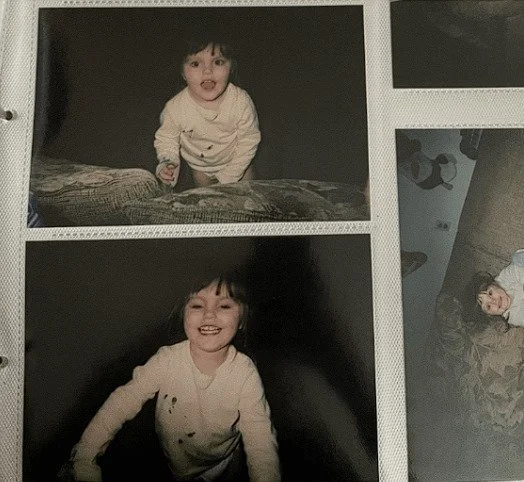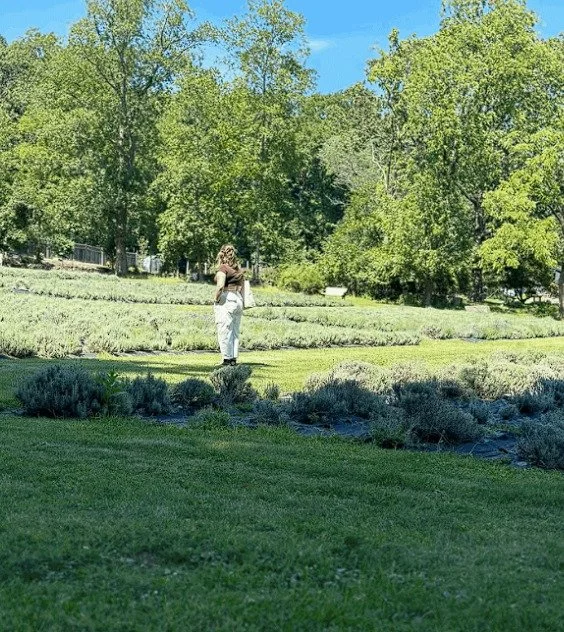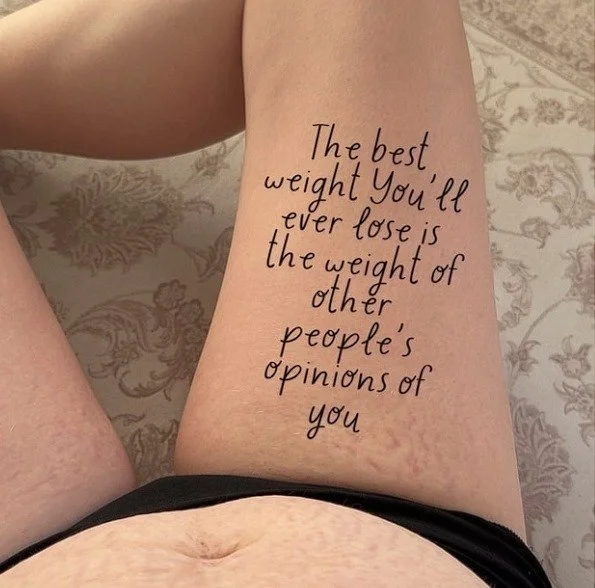Every Body is a Good Body (Aleiyah Aguero)
TW: Body image and eating disorder mentioned
“Fox-eye, retinol, anti-aging, Ozempic, buccal fat removal, face lift surgery…are these procedures and buzz words what make true beauty? According to the latest cosmetic trends, it seems to be the truth.
Growing up in the age of social media has, in my experience, rewired my brain to the point where I was convinced that, in order to be beautiful, one has to completely change themselves. You can imagine what this method of thinking can do to a young brain and how its enforcement continues to affect the younger generations. But it shouldn’t be this way. Our expectations of beauty should not be limited to Kardashian-sized proportions. The human body is capable of extraordinary things, and to shame it for simply existing is ridiculously harmful and counterproductive. As a young woman myself, these sorts of expectations have certainly impacted the way I think of myself, but I refuse to live my life hiding my body in shame and worry of what others will think. Because you look just like me, and I look just like you, and that is a wonderful thing.
One of my first childhood memories is being called “tubby” by a family member when I was around 5 years old. I didn’t quite know what it meant at the time, but I knew it was supposed to hurt, and it did. I looked down at my little stomach and wondered why it was hideous enough to insult. It had kept my organs safe and had helped me process the nutrients needed to survive. What was so wrong about that? Flash forward to an older-but-still-young version of me listening to adults debate the attractiveness of female celebrities, whether or not their noses or eyes or voices were ugly, and beginning to apply these questions to myself. Was my nose ugly? Or my voice? It sounded just like the woman’s voice that I had heard on the television. What was so wrong about that?
Puberty was a real turning point for me. I grew taller, hairier, chubbier, and then slimmer. I had acne and oily hair and my clothes didn’t quite fit me right. We are told that everyone goes through it, but how come the people on the screens didn’t seem to catch this supposed “disease” I was enduring? Why were the models in the magazines flawless? Why did I now have to wear an uncomfortable wired bra and start shaving my legs and wearing foundation to cover my pimples? This, on top of being thought of as the ugly-but-funny girl in the friend group, certainly did some damage to my self esteem. I thought that I would never be pretty enough for others to like me, and that I would have to be the “funny friend” forever.
Going into middle school, I began to border on eating disorder territory, starving myself most of the time so that I could lose my “baby weight.” I wasn’t as skinny as the other girls in my classes or in the movies and I felt like something was wrong with me. I felt like I was the only person in the world with stretch marks on my stomach and hair under my arms. It may sound ridiculous, but it is easy to feel like an alien when all you are ever shown by the world is what “perfect” is meant to be. And I felt like that alien.
The beauty industry and societal expectations certainly extend to everyone regardless of gender or identity, but being a woman in a patriarchal society definitely exacerbates these struggles. It is often felt that respect is only given to us based on the level of attraction men feel towards us. That we must enhance our bodies with plastic surgery and makeup in order to score job positions, partners, social media followers, and so on. That a plastic woman is more feminine than a natural one. That we are only beautiful when we are young and that we expire after 35. Too short, too tall, too fat, too thin, too this, too that. It is never ending. It is exhausting.
It is tough work to break free from the chains of self-comparison and self-deprecation; I know from personal experience. This can be even harder when we grow up around family members who may judge how we look, make snide remarks about our weight, and regulate the kinds of clothes we wear. Hearing negative opinions about your appearance from a young age can ultimately shape the way you think of yourself, especially when these remarks come from a parent--having a loved one judge how you look can cause you to judge yourself.
In my experience, growing up with parents who were insecure of themselves led to them projecting their insecurities onto their children. I look like my parents. I have my dad’s eyes, my mom’s hair color, the small bump on the bridge of my nose that my mom always hated on her own. It is difficult to watch your parents shame themselves for how they look, especially when you have inherited those very traits. After all, if the people who created you hate the way they look, how could they love those features on someone else? What kind of inner voice does that create, of self loathing and disgust?
But that inner voice is not the truth--it is not fact. It is from years’ build-up of generational submission to beauty standards, to society’s opinions. It does not reflect who you are as a person or your self worth. The only opinion that matters when it comes to you is yours. It can take years of work to break down that wall and to heal your inner child, but that work is so worth it in the end: to eventually learn to love yourself in spite of what anybody else says…that is a super power that many do not get to wield.
I won’t say that I suddenly found the courage to start loving my body and flaunting it off to the world. Honestly, to this day, I struggle to feel confident in my skin. But, as I began to grow older, head off to college, and stop obsessing over how I was being perceived by others, I started focusing on the aspects of my personality and identity that I liked most. The body positivity movement began to pick up speed on social media around this time, and I met people with similar insecurities and experiences as mine. When I took a moment to question whether or not I liked someone before wondering if they liked me, I realized that my view of myself and the world was changing. Some of the most eye-opening things often came from social media and seeing people with similar body types to mine being unafraid to show them off unapologetically. Allowing their leg hair to grow out, their facial features to be uneven, and their stretch marks to show proudly. Finding these people online in a sea of influencers who pushed harmful standards showed me the beauty in accepting myself regardless of what anyone else thinks.
Another life-altering realization I had was the fact that my body, as imperfect as I may think it is, is the reason why I am able to spend time with my friends, to eat delicious food, and to explore nature. My body is in and of itself proof that I have lived. My scars tell stories, my fingers match my father’s, and my smile lines are from wonderful time spent with the people I love. Whether or not I love my body the way that it is, I have to accept the fact that it is only because of my body that I am able to experience life in all of its craziness, and that if I do not respect it, then I am doing a disservice to not only myself but the world around me.
I am sure much of the LAD community experiences similar thoughts and insecure feelings to mine. I want you all to know that you are beautiful EXACTLY the way you are and that your uniqueness is your strength. There is absolutely no point in living a life in fear, hiding away who you are and what you look like for the sake of other people’s comfort. Every body is a good body. Your body houses your consciousness, your identity, and your thoughts, and that is what makes it beautiful. Your actions, your words, and your personality make you beautiful.
Like I said previously, it takes time to work through these deeply-ingrained belief systems. But, you don’t have to do it alone. Here at LAD, we recognize the importance of authenticity and we celebrate everyone regardless of who they are or what they look like. We will be here to uplift you and praise your bravery in standing up against the negativity entrenched in social media. The LAD community consists of countless individuals just like you who have dealt with self-hatred, insecurities, and the like, and writing in for some words of encouragement could potentially provide a stepping stone for your journey to self love. I know it certainly has helped me in mine.
Some other ways to slowly ease into repairing your self perception could be removing full body mirrors in your house, not counting calories so closely, and to stop following people online who you envy. For me, those were some of the first steps I took towards improving my self worth. I’ve also heard from friends that wearing makeup for artistic purposes rather than as a tool to hide your features can help, as well as removing your scale from your bathroom and not treating food as a reward to be gained. Additionally, following body positive creators online, finding a supportive community, and hanging self affirmations on your mirror to read every day can help reinforce positivity towards yourself and even towards others.
Most importantly, do what you want to do. Wear what you want to wear--what you think will make you feel best, not what the internet tells you to do. Get rid of the negative self-talk you might have unknowingly developed, and don’t say something to yourself that you wouldn’t say to a friend. In this journey, it is important to treat yourself the way you want others to treat you. If you find beauty in your friends, your family, and your loved ones, they are sure to find beauty in you, and you should instill that love and appreciation within yourself as well.
Remember: no matter how perfect, glowy, and smooth one’s skin may appear online, no one is perfect. Social media offers the perfect opportunity to highlight one’s strengths and hide one’s perceived “flaws,” creating a vacuum in which viewers assume that the people they revere online are faultless beings. But we are all people, we all age and function in our human bodies with all of their weaknesses and strengths. No matter how popular something is, what trends are circulating now, you are beautiful. Your body does not dictate your worth. Every body is a good body--even yours.”














